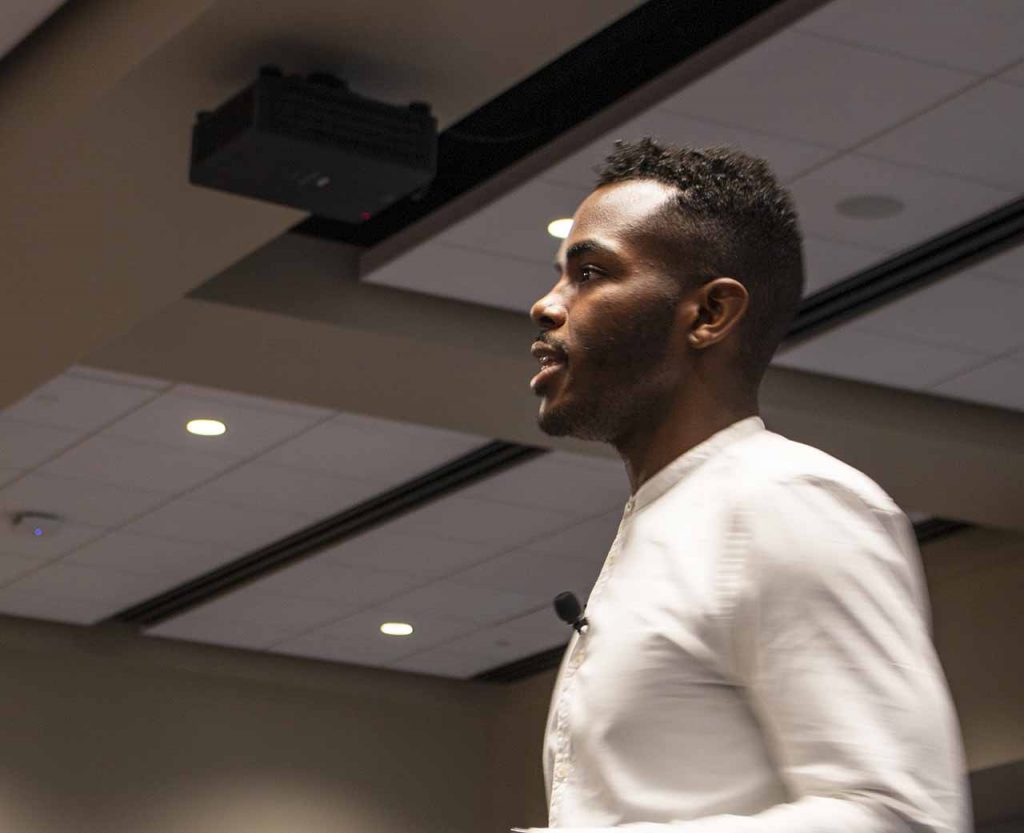
The role of activism at the University of Mississippi was compared to past activism at the University of Missouri during an event on Thursday. The discussion, Dialogues on Diversity, was the last event of the Student Activism and Leadership Summit, sponsored by the Center for Inclusion and Cross-Cultural Engagement and co-sponsored by the Associated Student Body and the Black Student Union.
Provost Noel Wilkin, who opened the session, spoke about his own thoughts on activism and how students can produce change on our own campus.
“Activism and leadership share a common outcome: change,” he said. “But change is hard. From my view, effective change requires us to work together, to discuss our views, and help people understand the change that is needed. We need to facilitate an environment that helps each of us to reach our full potential. It is my belief that events like this can inspire a vision of hope. I see hope in our ability as a community to overcome hate, oppression, and aggression.”
Former University of Missouri Students Association President Payton Head headlined the event. Head served as Students Association President at Mizzou following the happenings of Ferguson, Missouri, in 2014, saw the resignations of both the chancellor of the University of Missouri as well as the president of the University of Missouri system, as a result of their mishandling of racial incidents during that time.
“The fall of 2014 changed my life,” he said. “It changed the way I looked at advocacy, the way I looked at the effect that students can have on their campus and in the world around them.”
Sponsored by the Center for Inclusion and Cross-Cultural Engagement and co-sponsored by ASB and the Black Student Union, the day featured sessions on activism and leadership, ending with Head, who focused on establishing a dialogue on the Ole Miss campus that fosters inclusion and intersectionality.
Head explained that activism is not always easy or uniform, but he expressed appreciation for those fighting for justice.
“Activism looks completely different for everybody,” he said. “It’s been glamorized on social media lately, but there are people who are engaging in this system every day, in a system that was not built for people who look like them.”
He also argued that the lack of dialogue is what is breeding the problem, and that people from different perspectives on campus must interact for positive change to take place.
“The problem is that right now people literally aren’t talking to each other. People are each going their own way — athletes one way, Greek another. There’s a lack of communication. We have to think of each other as human beings, and have community dialogues,” he said.
Rashun Miles, a Ph.D. student in social welfare, didn’t attend Ole Miss for his undergraduate studies and said that the possibilities that advocacy create are promising.
“I think it’s a work in progress,” he said. “It’s bureaucracy and a lot of physical and invisible walls, but I think through advocacy and engagement, it’s possible to advocate while taking into consideration those who aren’t at the table.”
Nadia Jeffries, a social work major from Holly Springs, said that for her, standing up when she sees an injustice is the most important thing.
“I think it’s important to speak up about situations that students see an issue with,” Jeffries said. “It’s nerve-wracking at times, but as long as you’re doing it in a positive way, the outcome will follow.”
















